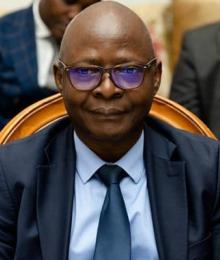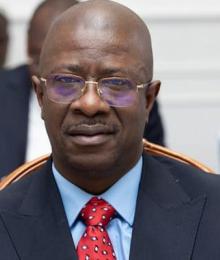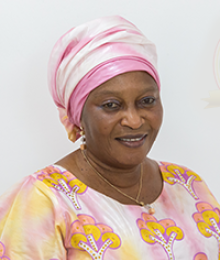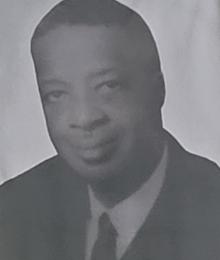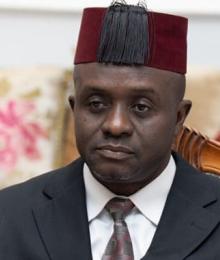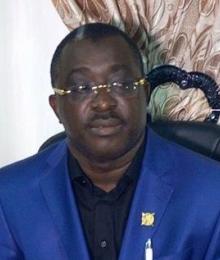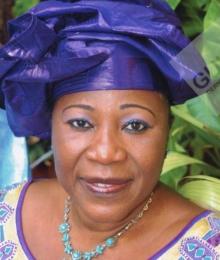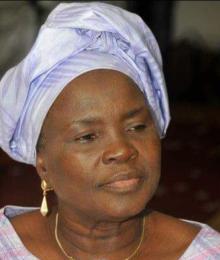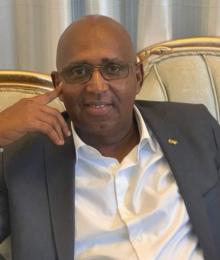
Aïssatou Boiro, born in 1954 in Koundara, Guinea, was a high-ranking Guinean official renowned for her exceptional integrity and relentless fight against corruption. Appointed as the Director of the National Treasury in early 2012 by President Alpha Condé, she made a significant impact by dismantling a major public fund embezzlement network (about 1.5 million euros) in May 2012. Known as a courageous, incorruptible, and determined woman, she was assassinated on November 9, 2012, in Conakry by armed men while returning home without any special protection despite receiving threats.
Her murder, which caused a wave of national and international outrage, was seen as an attempt to intimidate and hinder the fight against corruption at the highest levels of the Guinean state. She left behind her husband, Ibrahima Boiro, a university professor and researcher, as well as four children.
Introduction
Born in 1954 in Koundara, in the northern region of Guinea, Aïssatou Boiro embodied integrity and uprightness in a country where corruption often undermines institutions. Her exemplary career in the service of the Guinean state was tragically cut short on November 9, 2012, when she was assassinated by armed men in Conakry, leaving behind a legacy of courage and determination.
Family Life and Personal Background
Aïssatou Boiro was married to Ibrahima Boiro, a respected Guinean figure in the academic and scientific community. Her husband held several prestigious positions: professor of biology at the University of Conakry, director of the Center for Environmental Studies and Research (CERE), and president of the National Bioethics Committee of Guinea. The couple had four children.
In a symbolic gesture, President Alpha Condé appointed Ibrahima Boiro as the Minister of Environment, Water, and Forests through a presidential decree on November 26, 2012, just a few weeks after the assassination of his wife. This decision demonstrated the state's recognition of a family deeply affected by this tragedy.
Career and Fight Against Corruption
In early 2012, Aïssatou Boiro was appointed Director of the National Treasury of the Republic of Guinea by President Alpha Condé. This strategic position gave her significant responsibilities in managing the country's public finances.
During her tenure, she quickly stood out for her unwavering commitment to fighting corruption. In May 2012, she played a pivotal role in dismantling a criminal network that attempted to embezzle 13 billion Guinean francs (approximately 1.5 million euros). This major operation led to the arrest of several officials from the Ministry of Finance, the National Treasury, and the Central Bank.
According to the then Minister of Finance, Kerfalla Yansané, Aïssatou Boiro helped establish a "meticulous public spending control system" that effectively "thwarted various fraud attempts." Her strictness and determination unfortunately earned her the enmity of certain interest groups.
Assassination That Shocked Guinea
On the evening of November 9, 2012, while returning home after a day's work, Aïssatou Boiro was shot dead by armed men in the affluent neighborhood of Kipé, on the outskirts of Conakry. Paul Temple Cole, an IT specialist, was also killed in the attack. According to the forensic examination, she died from two gunshot wounds to the chest.
What makes this crime even more troubling is that, despite receiving death threats, Aïssatou Boiro had not been given any specific protective measures. On the day of her assassination, she was alone with her driver, without a bodyguard.
This heinous act sent shockwaves across Guinea, stirring strong national emotions. President Alpha Condé personally visited the grieving family to express his condolences. As a tribute to her service to the state, the government declared November 13, 2012, a national day of mourning. An official ceremony was held at the People's Palace in Conakry, where Aïssatou Boiro's body was displayed, and many dignitaries honored her courage and dedication.
An International Symbol in the Fight Against Corruption
The assassination of Aïssatou Boiro also provoked international outrage. Many institutions and countries condemned the act, including:
- The French Ambassador to Guinea, Bertrand Cochery
- The U.S. Department of State, which issued an official statement on November 14, 2012
- The International Monetary Fund (IMF) representative in Guinea, Aziz Wann, who described Aïssatou Boiro as "the image of a changing Guinea"
- The European Union representative in Guinea, Philipe Van Dame
Human Rights Watch also condemned the assassination, emphasizing that it was "more than just an individual tragedy" and called on the government to "intensify the fight against corruption, which has hindered the country's development and respect for human rights in Guinea for decades."
Investigation and Judicial Proceedings
The investigation into Aïssatou Boiro's murder saw several developments over the years. On December 29, 2012, two suspects were presented to the press by the Central Directorate of Judicial Police: Alpha Oumar Bah, known as Mbewal, a 27-year-old Guinean, and Mohamed Sankhon, a Sierra Leonean national. According to authorities, these individuals were part of a five-member gang, with the remaining three suspects still at large.
In the following years, the case proceeded through the Guinean judicial system. In April 2019, the Court of First Instance in Dixinn delivered its verdict: Mohamed Diallo, known as Junior, and Elhadj Oumar Barry were sentenced to life imprisonment with a 30-year minimum term. Three other defendants — Okolo Omo Zahpa, Elhadj Ousmane Baldé, and Oumar Lamarana Diallo — each received 20 years of imprisonment.
However, the lawyers for the five convicted individuals appealed the decision, leading to a new trial on July 16, 2021, before the Conakry Court of Appeal, nearly nine years after the events. The accused continued to deny any involvement in the double murder.
Legacy of Integrity and Courage
Aïssatou Boiro remains a powerful symbol of resistance against corruption in Guinea's collective memory. As aptly stated by Finance Minister Kerfalla Yansané during her memorial ceremony: "She died because she refused any compromise between public interest and the sordid interests of mafia groups."
Far from discouraging honest officials, her assassination has been presented as a call to action to "carry the torch of integrity and honor so that corruption and impunity are forever banished" from Guinean society.
Nearly a decade after her passing, Aïssatou Boiro's name continues to symbolize the fight against corruption in Guinea and inspires those striving for transparent and equitable governance in Africa.











